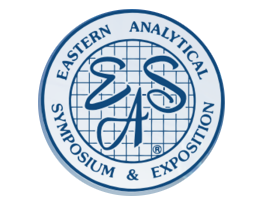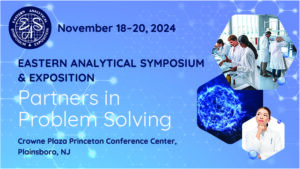One-Day Course
Sunday, Nov. 17; 8:30am – 5:00pm
Dr. Joseph Pesek, San Jose State University, San Jose, CA
Dr. Maria Matyska-Pesek, San Jose State University, San Jose, CA
COURSE DESCRIPTION
Silica-hydride based HPLC separation materials offer an innovative and easy approach to the analysis of complex mixtures. This short course will focus on how commercially available HPLC and LCMS columns can solve a broad range of common analytical problems. The fundamental properties of silica-hydride will be reviewed in order to distinguish these stationary phases from ordinary silica-based materials, particularly the capability of operating in both the reversed-phase and normal-phase modes, in some cases simultaneously. Quick method development and optimization will be covered that you can take back to the lab.
WHO SHOULD ATTEND
Laboratory scientists, technicians and managers involved in complex & routine analyses that demand robust, dependable HPLC and LCMS methods.
TOPICS
1. Fundamental Properties of Silica Hydride
a. Chemical structures
b. Water layer and how it affects chromatography
c. Other important differences in properties that effect separation
d. Introduction to Aqueous Normal Phase Mode of HPLC & How to use it.
2. Practical Applications of Silica Hydride Stationary Phases
a. Pharmaceuticals
b. Food Science
c. Forensic Science
d. Metabolites, Organic Acids, Amino Acids & Peptides
e. Other fields of analysis
3. Good Laboratory Practices When Using Silica Hydride Stationary Phases
a. Preparing the HPLC System
b. Steps before using the column the first time
c. Initial steps in developing a reversed-phase method
d. Initial steps in developing a normal-phase method
e. Common problems encountered when developing a method for the first time
ABOUT THE INSTRUCTORS
Dr. Joseph Pesek was born in Chicago and has a B.S. degree in Chemistry (University of Illinois) and Ph.D. in Analytical Chemistry (UCLA). He is Professor of Chemistry at San Jose State University and was named a Camille and Henry Dreyfus Foundation Scholar in 1993 and in 2001. He had sabbatical leaves in Paris France, Marseille France, and Melbourne Australia. He has over 240 publications, 3 books, 4 patents and made over 200 presentations. He is one of the editors for the Journal of Separation Science. He was named a CASSS Distinguished Fellow in 2016, was awarded the California State University Program for Education and Research in Biotechnology (CSUPERB) Research Award, received the American Chemical Society Award for Research at Undergraduate Institutions in 2018 and in 2019 the Eastern Analytical Symposium Award for Outstanding Achievements in Separation Science. His research interests include the development, characterization and applications of separation materials for chromatographic and electrophoretic processes used for a wide variety of applications including pharmaceuticals, forensics, food, beverages, dietary supplements and clinical assays.
Dr. Maria Matyska-Pesek, Professor of analytical chemistry at San Jose State University, received her B.S. degree in pharmacy from the Medical Academy, Lublin, Poland in 1981 and Ph.D. degree in analytical chemistry from the Medical Academy, Lublin, Poland in 1989. She spent an additional year as a postdoctoral fellow at Universite d’Aix Marseille, France. Her first academic appointment was at Medical Academy, Lublin, Poland (Chemistry Department) in 1982 and then she moved to San Jose State University in 1993. She has been a visiting research professor at Leiras, Turku Finland, Universite d’Aix-Marseilles, Monash University in Melbourne, Australia and the University of Queensland Department of Pharmacy in Brisbane Australia. Dr. Pesek has received 3 research and educational grants totaling over $200,000 since she began her academic career. Funding from public agencies has been provided by the Polish Ministry of Education and Brazilian Ministry of Science and Technology, Private sources of support include Microsolv Technology Corp., Agilent Technologies (donation of LC-MS instrument). Her research interest includes the field of metabolomics. A modified silica hydride stationary phase developed in Pesek’s research group is an ideal medium for separation of hydrophilic compounds found in metabolic samples. She works in collaboration with medical schools at UCLA and Cornell Weill, and in collaboration with industry: Thermo Fisher Scientific, Agilent Technologies and Perkin Elmer. These activities have resulted in 183 publications in peer-reviewed scientific journals and development of new stationary phases for High Performance Liquid Chromatography which are available through Microsolv Technology Corp of Leland, NC.

